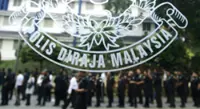KLANG: A leadership tussle in the Malaysian Trades Union Congress (MTUC) in recent years has reduced the major organisation to a shadow of its former self.
Industrial relations expert Dr R. Nagiah said the infighting and power struggle in the umbrella body for the past two triennial delegates’ meetings (over six years) had taken a toll on the labour movement in Malaysia.
The battle for leadership and control of the MTUC between two groups in the organisation is now pending at the Court of Appeal.
Fortunately, the case may be resolved soon following a recent decision by the MTUC general council to retract it.
ALSO READ: It’s time to change to a healthy lifestyle
Nagiah pointed out that although employment trends have changed, there is still a need for workers – both executive and non-executive – to be represented by unions.
“Unfortunately, many employees themselves do not realise the need for a voice to protect their best interests at the workplace.
“Furthermore, there is a misconception among younger employees that unions are only for blue-collar workers.
“Also, the current movement has failed to engage the younger generation,” he said.
Nagiah said in the past, about 20% of the nation’s overall workforce were union members, but the number has plummeted to 6.2% now.
“It’s also unfortunate that many in the workforce do not give the movement much acknowledgement and respect like in the past,” he said.
MTUC secretary-general Kamarul Baharin Mansor admitted that the internal conflict has somewhat rendered the organisation powerless and weak.
“We realised this and even Human Resources Minister Steven Sim has told us that we need to settle our internal conflict for MTUC to move forward,” he said.
He added that given this, the MTUC general council had, at a meeting on April 28, unanimously decided to retract its case pending at the Court of Appeal.
“We are doing this to welcome Labour Day 2024 because we realised the need to engage the younger generation of workers to take over the nation’s trades union movement,” Kamarul Baharin said.
He concurred with Nagiah that the younger generation did not understand the importance of the workers’ movement and the need for labour representation.
The MTUC, Kamarul Baharin said, will be going all-out to talk to and engage with the younger generation.
Meanwhile, former human resources minister Tan Sri Dr Fong Chan Onn recalled how during his tenure, from 1999 to 2008, the government, MTUC and Malaysian Employers Federation (MEF) used to have tripartite meetings to discuss various issues.He said many disputes between the MTUC and MEF were settled out of court because of the tripartite meetings.
“Things such as the backlog of cases in the Industrial Court were also countered in these meetings as we managed to settle many of the disagreements out of court.
“What the ministry did was to explain the situation to the MTUC and MEF from the perspective of the various labour and employment-related laws,” he added.
Fong, and his predecessor, Tan Sri Lim Ah Lek, who served as human resources minister from 1990 to 1999, oversaw the most vibrant period for such beneficial tripartite meetings.
Fong also remembers the formidable team that had led the MTUC then, consisting of its president Tan Sri Zainal Rampak and secretary-general, the late G. Rajasekaran.
“They were very hard-hitting but well respected by employers, and they also understood that sometimes compromises had to be made for the sake of workers,” he said.
When contacted, Zainal said the MTUC of the past would address many issues, not just labour-related matters.
“We would raise issues pertaining to inflation, cost of living and escalating prices of essential goods,” he said.











































